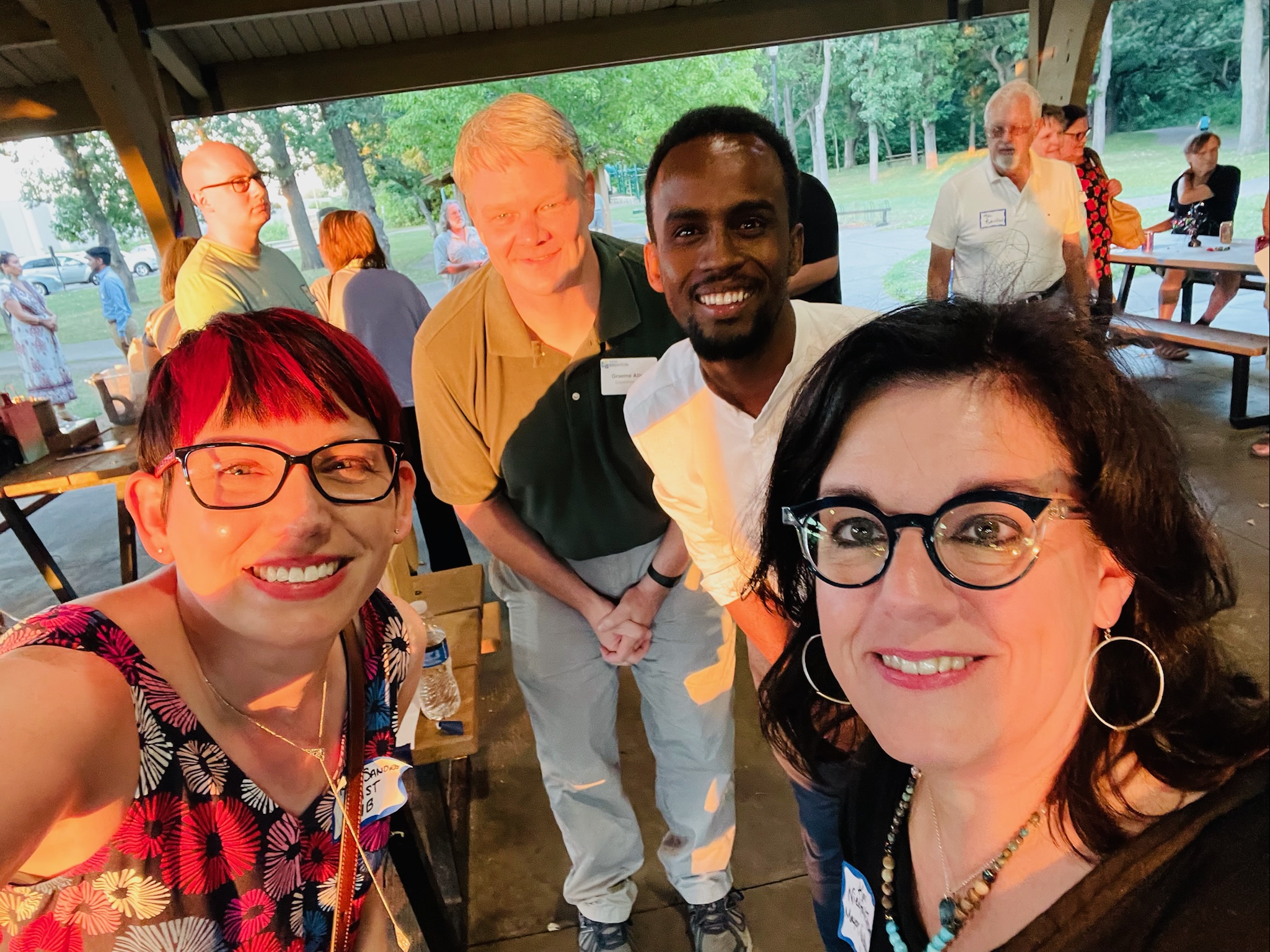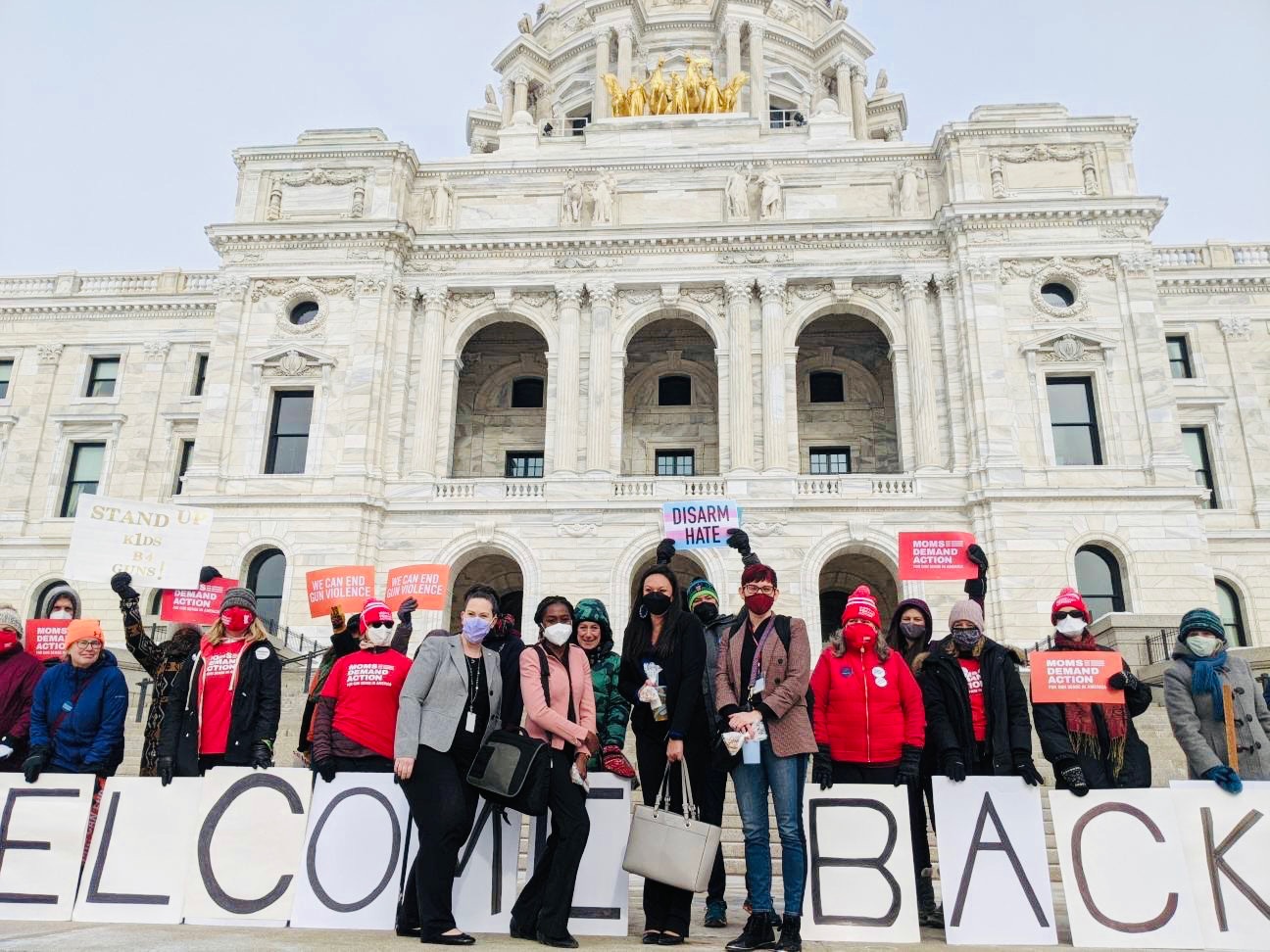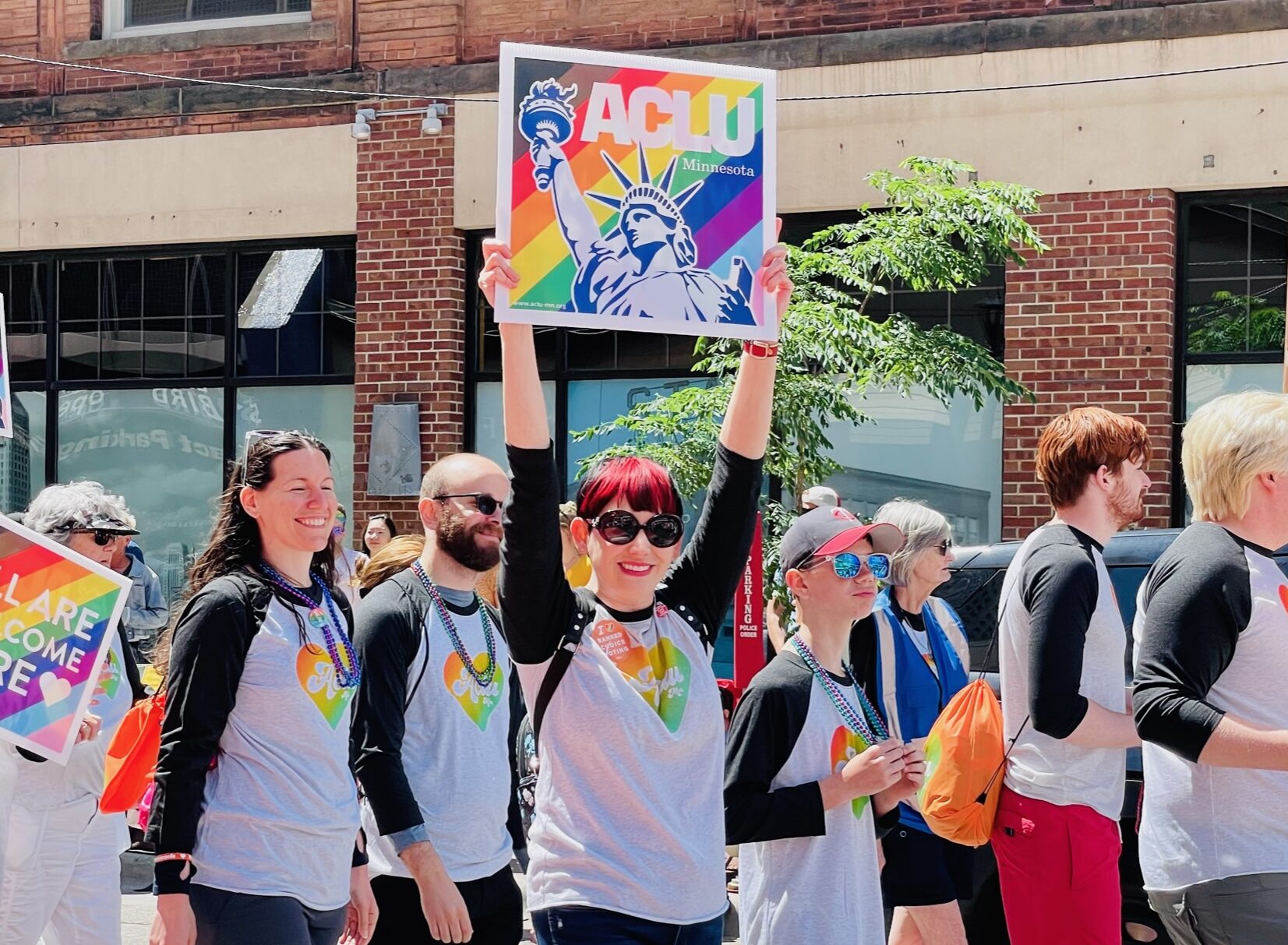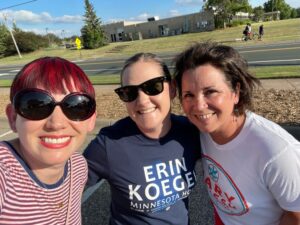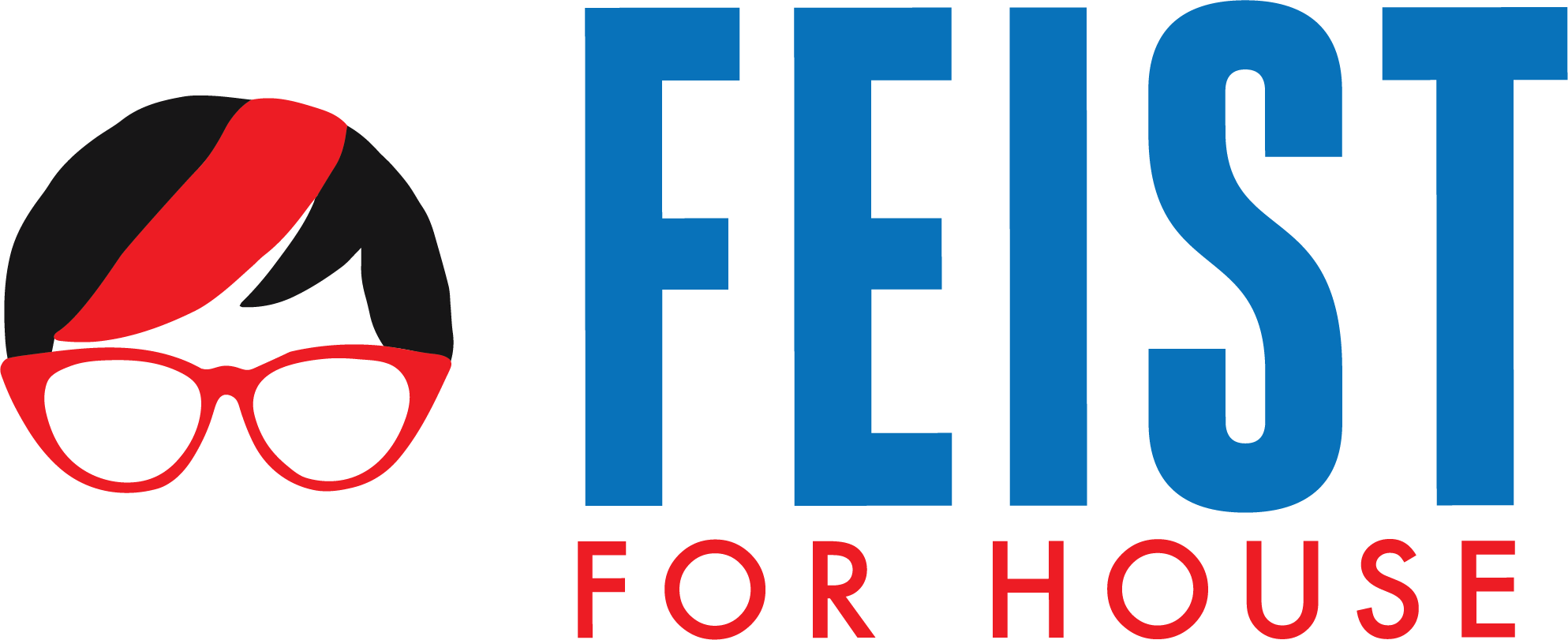Meet Sandra
I’m a born-and-raised Midwesterner who grew up in Wisconsin. After graduating from college, I moved to New Orleans to sing jazz in the French Quarter. When I started working as an immigration paralegal, I found my passion in life. When I saw how immigrants’ rights were threatened after the September 11 attacks, I knew I had to go to law school to help people stand up against prejudice and injustice. I began law school in New Orleans, but Hurricane Katrina sent me evacuating north to be with my family in Minnesota in 2005. When I met my husband, Ben, standing in line in the cafeteria of my temporary law school, I knew I was here in Minnesota to stay. Fifteen years later, I am proud to call Minnesota my home.
My husband Ben and I share a deep commitment to fighting for civil rights. Before joining me in the practice of immigration law, he was a lawyer with the American Civil Liberties Union (ACLU) of Minnesota for many years. When we were looking to buy a new home, Ben and I wanted to make certain that our two children grew up in a community with excellent public schools, welcoming neighbors, and diverse residents who look like Minnesota. We found all of those things in New Brighton, and we love the feeling of community we have found here. Like all moms, I seem to spend most of my time driving my children to their activities. In recent years, our country’s political landscape has become increasingly turbulent, and I have often battled back a feeling of powerlessness with the knowledge that perhaps my most important contribution to democracy is to raise empathetic, civic-minded children who will give back to their community.
My commitment to fighting injustice and helping others achieve a better future has been constant throughout my career. In 2010, I founded my law firm with a lot of inspiration and no savings. My firm now employs a team of 10 amazing legal professionals. Through my immigration work, I have helped hundreds of people achieve their dreams of living in the United States.
I am deeply committed to public service and volunteer for many organizations that provide free services to immigrants, as well as on-the-ground advocacy work. I’ve held leadership roles within the American Immigration Lawyers Association, regionally and nationally, and have been active on boards and committees with a variety of local organizations including the YWCA, Minnesota Women Lawyers, and the ACLU of Minnesota. Through these roles, I’ve had the honor to make a direct impact on the lives of low-income immigrants and also shaped the national dialogue over immigration policy through direct advocacy and collaboration with Minnesota’s Congressional delegation. As the Representative for our district, I continue the fight, so that we can build a Minnesota where everyone is welcome and has the opportunity to thrive.

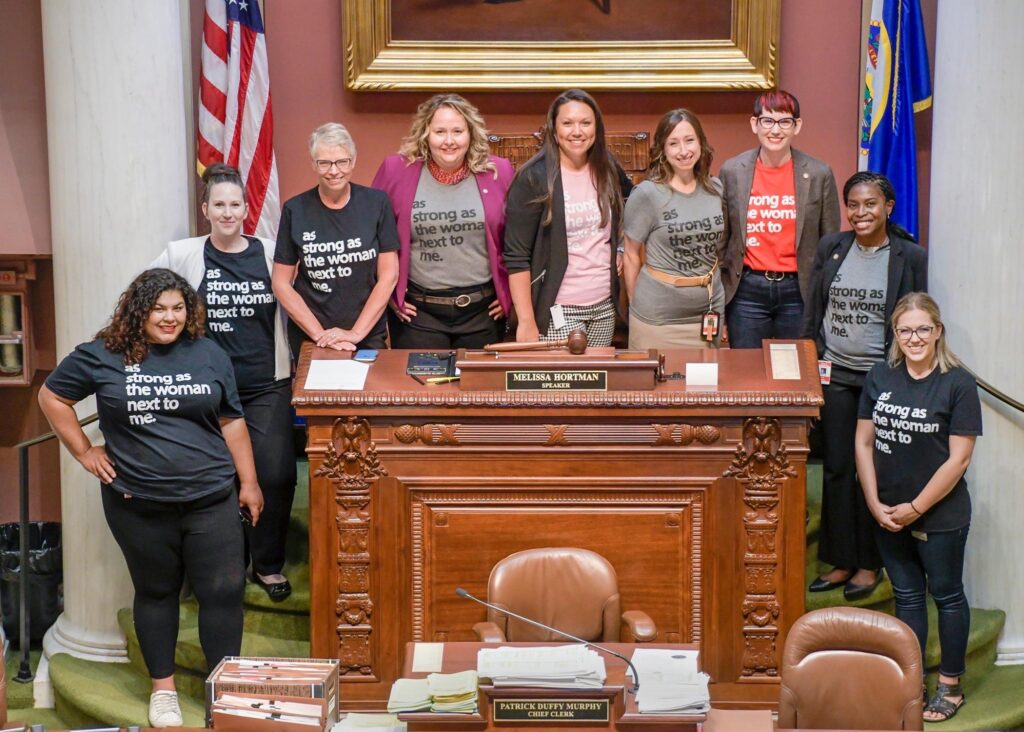
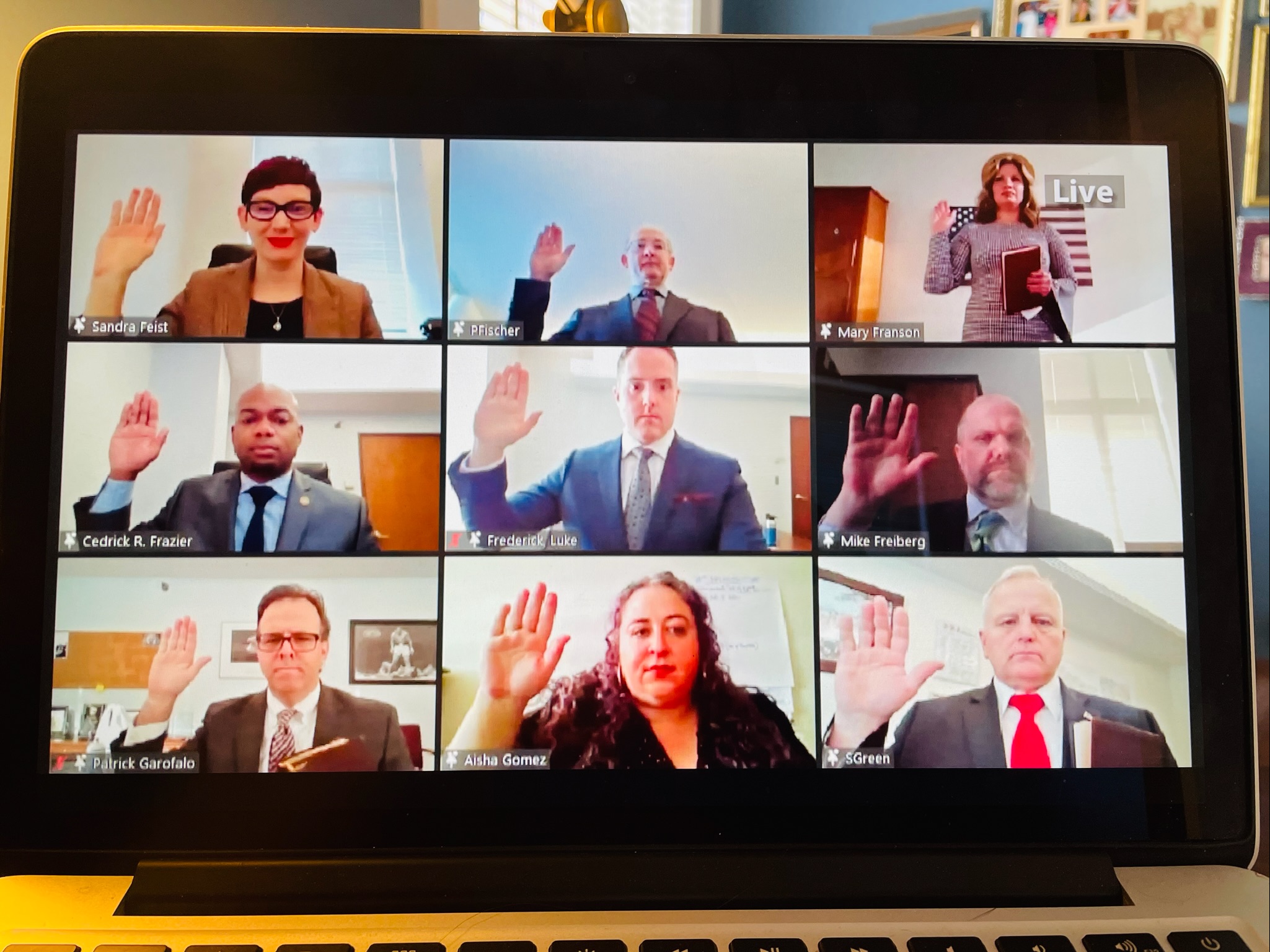
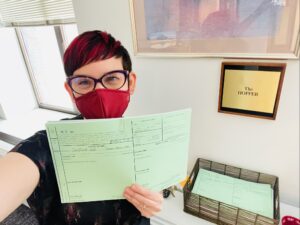
During my second term, I felt strongly that I wanted to use this time wisely while we had the unique opportunity to move legislation efficiently without the hurdle of a divided legislature. In addition to the bills highlighted below, I worked on “good governance” bills to make technical updates to our laws to ensure that they function optimally. I find these types of bills immensely satisfying, even if they don’t capture the imagination. It’s an honor to do this work on bills, both big and small.
Office of Restorative Practices: I championed legislation to create an Office of Restorative Practices within the Department of Public Safety to expand youth restorative justice in Minnesota. This is a historic step away from a punitive, unjust, ineffective, and costly system of youth justice towards one that reduces recidivism and racial disparities.
Youth Intervention and Prevention Grants: As part of my advocacy for deep investments in youth justice, I also chief authored legislation to significantly increase the annual funding for Youth Intervention Programs (YIP) that administer grants statewide to support youth growing up with toxic stress, trauma, or abuse. In addition, I secured funding for grants to intervene where youth are involved in both the child welfare and juvenile justice systems.
Ended Unconstitutional Juvenile Life Without Parole: I successfully shepherded legislation to finally end the practice of sentencing youth to life without parole, which was found unconstitutional by the U.S. Supreme Court in 2012. This legislation will provide hope and an opportunity for rehabilitation and release, following in the footsteps of 27 other states. Over 1000 people who were told as children they would die in prison are now home, thanks to legislation like this.
In 2024, after a number of individuals received hearings and were denied and set out for an additional 10 years before they could be reheard, we added a provision to permit a rehearing no later than three years after the denial. This will ensure that we don’t have a de facto unconstitutional system and that these individuals will have a meaningful possibility of release if they can demonstrate rehabilitation and that it is in the interest of public safety.
Protections from Wage Theft in the Construction Industry: I am thrilled by this legislation that addresses wage theft directly, completing the work the legislature began in 2019 to address the all-too-prevalent practice of wage theft in the construction industry. This issue disproportionately impacts immigrant workers and shifts the burden of preventing wage theft from workers, who have the least amount of power to assert their rights, to general contractors who control the project site.
Menstrual Equity: I was thrilled to carry this great legislation brought to me and championed by middle school, high school, and college students. It was a joy to work with student and community advocates to successfully pass bills addressing period poverty in our schools and providing free period products to students from 4th grade through to higher education at Minnesota State Colleges and Universities.
Probation reform: For decades Minnesota has struggled to adequately, equitably, and strategically fund our statewide community supervision programming, which is divided between counties and the Department of Corrections. I stepped in to work alongside the counties and the Department, as well as reformers, to chief author this legislation that creates a new funding formula and begins the process of reforming our probation systems to address the striking racial disparities in outcomes. This was a huge win for all 87 counties and for Minnesotans under supervision who can move forward successfully with their rehabilitation with additional support and fewer barriers.
50-Year Clean Water Action Plan: I worked with the Friends of the Boundary Waters on this legislation to begin the process of funding a 50-year Clean Water plan. This plan will be developed by the University of Minnesota Water Council, which manages and coordinates the U of M Water Network, a coalition of faculty, researchers, students, and staff working together to advance water-related research for a sustainable future.
Compensatory Revenue: Compensatory revenue is a significant portion of our education funding formula focused on students not meeting academic standards. For the past several years, I have been working with stakeholders on a new formula to replace our current funding formula which is based on free and reduced lunch forms. Because these forms are going to become obsolete as we transition to Universal Meals, we need a new “proxy” that will ensure that we are still adequately targeting these dollars toward students in need of this support. While my full formula was not included, we did pass into law the policy provisions designed to better target this funding, and language creating an interim funding stage to avoid disruption of funding as we switch to Universal Meals. Next session, I’ll take up this work to continue with the next steps!
Gross Misdemeanor Definition Change to Prevent Collateral Immigration Consequences: My legislation changes the definition of Gross Misdemeanor retroactively to be a maximum possible sentence of imprisonment of 364 days, rather than 365 days. In doing so, we will ensure that no Gross Misdemeanor in Minnesota can be considered an “Aggravated Felony” for immigration purposes, resulting in a near-automatic deportation. This small change will yield big consequences for immigrant communities.
Office of New Americans: The Office of New Americans, within the Department of Employment and Economic Development, is currently a temporary office with a mission of providing coordinated support to integrate new immigrant and refugee residents of Minnesota into our communities and our workforce. I am thrilled that my legislation will expand and solidify the role of this office has passed, with significantly increased funding. The Office can now provide more coordinated and effective outreach to these communities moving forward.
The Violence Project: I was proud to partner with the Violence Prevention Project Research Center to secure funding for its efforts dedicated to reducing violence in society and using data and analysis to improve policy and practice. The Center’s research on mass shootings has received global media attention. Funding their work will give the legislature the tools for evidence-based policy development on gun violence prevention and intervention.
The Boundary Waters Permanent Protection Bill: I introduced the Boundary Waters Permanent Protection bill in the House this session, working with the Save the Boundary Waters Campaign. The Boundary Waters Permanent Protection Bill permanently protects the Boundary Waters Canoe Area Wilderness and Voyageurs National Park from the inevitable and devastating damage that would result from sulfide-ore copper mining pollution in its watershed. We have more work to do next session to get this bill across the finish line.
Fusion Center: The Fusion Center, housed within the Bureau of Criminal Apprehension (BCA), allows participating agencies to share information about suspected criminal and terrorist activity.
I worked alongside the BCA to draft an annual reporting requirement so that we better understand what type of activities are monitored, what scale of information is collected, what quantifiable benefit there is to this type of data collection and sharing, and to provide more clarity on the data sharing between state and federal agencies. This transparency is particularly important when it comes to government agencies gathering data on private citizens who may not have violated any laws. I am looking forward to reading this annual report in the coming years.
Labor trafficking: I worked alongside the Advocates for Human Rights and the Hennepin County Attorney’s Office to update our labor trafficking laws to address some glaring holes in our existing statutes that enable perpetrators to evade the law and enhance penalties in particular severe instances of trafficking. This legislation was designed to better protect uniquely vulnerable undocumented workers from exploitation.
Manufactured Housing Reform: I worked alongside advocates to pass two bills that will enhance the rights of residents of manufactured housing communities. These communities represent the most common form of affordable housing in our state and these reforms will impact the lives of the many residents in my Senate District and across Minnesota. The first bill creates new protections around how park owners pass along the cost of utilities to residents. The second bill, called the “Opportunity to Purchase” bill, will provide important notice to residents of the possibility of the sale of their community via a private sale. This notice will enable residents to organize and offer to collectively purchase their community, providing more stability and facilitating deeper investments in infrastructure.
Children’s Law Center: The Children’s Law Center provides pro-bono legal representation to children ten and over who find themselves in the child protection system and out-of-home placement. The Center utilizes a small staff and hundreds of volunteer attorneys who step up to support children, representing them all the way through either reunification with their parents, adoption, or until they age out of the foster care system. I worked alongside the Children’s Center to secure funding for their important operations.
Addressing cell phones in our schools: As a mother and a legislator, I was compelled to address the impact of cell phones in schools on student mental health, behavior, and academic attainment. My bill simply requires schools to be proactive in creating a policy around cell phones and for the two Principals Associations to provide resources and best practices so that schools can make informed decisions.
I had the opportunity to discuss this bill with Minnesota Public Radio and the Minneapolis Star Tribune, and this bill was also endorsed by the Minneapolis Star Tribune Editorial Board. I’m very excited to see the impact of this on student wellbeing and have been gratified by the many supportive emails I’ve received from teachers around the state. This past week, I was interviewed again by Minnesota Public Radio along with my Republican co-author, Rep. Kristin Robbins.
Fixing our unconstitutional property tax forfeiture laws: I collaborated with many interested parties and analyzed the U.S. Constitution to craft new tax forfeiture laws after the U.S. Supreme Court found that Minnesota’s laws were unconstitutional in May 2023. This was a complicated series of negotiations and decisions and the bill passed in the final minutes of the legislative session. This bill has been referred to by Minnesota Public Radio as “less glamorous but important,” which really sums up “my lane” in the Legislature. This legislation crafted a new system to ensure that property owners receive any value for their forfeited property and created new notifications and resources to help these property owners hopefully avoid tax forfeiture in the first place.
Restorative Restitution for kids: This bill creates additional mechanisms and funding to support restorative restitution for children who come into contact with our legal systems. This programming ensures that children are held accountable for their behavior in a way that is meaningful to them. These programs have the added benefit of providing affirming opportunities for children to feel connected to and supported by their community. As a result of the new law, victims of crime will be supported, and children will be held accountable in a way that will reduce recidivism and protect public safety.
Strengthening guardianship laws for vulnerable seniors and adults living with disabilities: I worked with Elder Voice Advocates and disability experts to correct a gap in the law created by a recent Minnesota Court of Appeals case. This case resulted in an elimination of all civil liability whatsoever for guardians in their provision of care, regardless of how reckless, dangerous, or harmful their conduct. Under the new law, guardians will be held civilly liable for conduct that causes harm to a person under their care that constitutes reckless or willful misconduct, or gross negligence. After hearing heartbreaking stories about guardians who denied relatives to be together, endangered lives due to neglect over dietary restrictions, and caused irreparable trauma, I am incredibly proud of this legislation.
In addition, this legislation created a guardianship taskforce in order to explore all aspects of guardianship in Minnesota, with the goal of ensuring that seniors and individuals with disabilities who need additional supports can live their lives with optimal autonomy and dignity.
Securing funding to address increases in homelessness: For the second year in a row, I worked with Hennepin County on legislation to support its innovative homelessness programming. The legislation that resulted created new $3.4 million in statewide funding to address increases in homelessness and shelters at risk of closure.
Healthcare adverse events reporting: The Minnesota Department of Health was temporarily tasked with providing an annual report around adverse events in Minnesota hospitals. Adverse events are avoidable incidents that lead to patient injury. In its 2023 report, the MDH found that adverse events are historically high. This data is critical to understanding safety concerns in hospitals, and also correlating staffing levels to patient care. This is because the two most common adverse events are bed sores and falls, both of which have been demonstrated to be particularly connected to unsafe staffing levels.
My legislation extended the annual reporting indefinitely. In future sessions, I will continue to work with nurses and other patient care staff to identify ways to address these trends around unsafe staffing levels. This is a critical labor issue as well as a critical healthcare issue for all Minnesotans.
Simplifying Legal Aid court fee waivers: Under this bill, clients represented by civil legal services, a volunteer attorney program, will be presumed eligible for court fee waivers based on poverty. This will save the courts and lawyers extensive wasted time and will ensure equal access to justice by low-income Minnesotans.
TODD!!!: As a lawyer, it’s always fun to collaborate with the Minnesota State Bar Association on legislation to improve our legal systems. (There is a reason I am the founder of “NerdCaucus”).
This bill addresses the transfer of property on death in instances where a “transfer on death deed” is used. These “TODDs” are often prepared incorrectly by individuals without attorneys. This law will create more protections for these TODDs so that the property can still avoid probate and pass as intended. In addition, this bill creates protections around insurance policies when a property is inherited. I’m proud of this bill because it is a “good governance” bill that makes our laws more clear, more fair, and more effective.
Charter school policy: This bill enhances charter school board governance by creating more restrictions and guidelines to ensure that board members are qualified and to avoid conflicts of interest. In addition, this bill enhances the professional development requirements for charter school administrators. These provisions, in addition to clarification of the role of charter school authorizers and the Department of Education, will enhance charter school operations in Minnesota.
Data bill relating to services for students with disabilities: This legislation ensures that the Department of Employment and Economic Development (DEED) will be able to access information about graduating students with disabilities who may benefit from DEED’s programming to provide pre-employment transition services.
